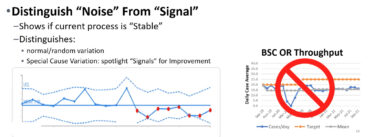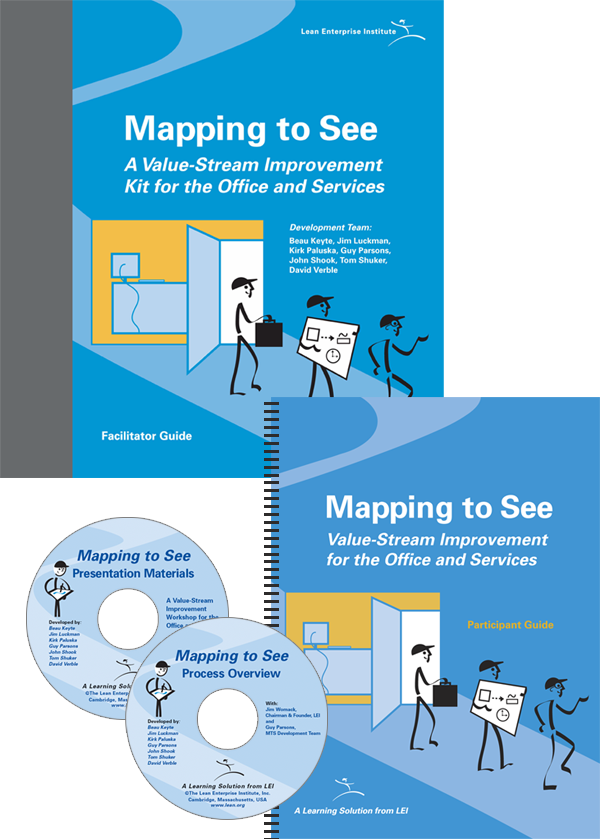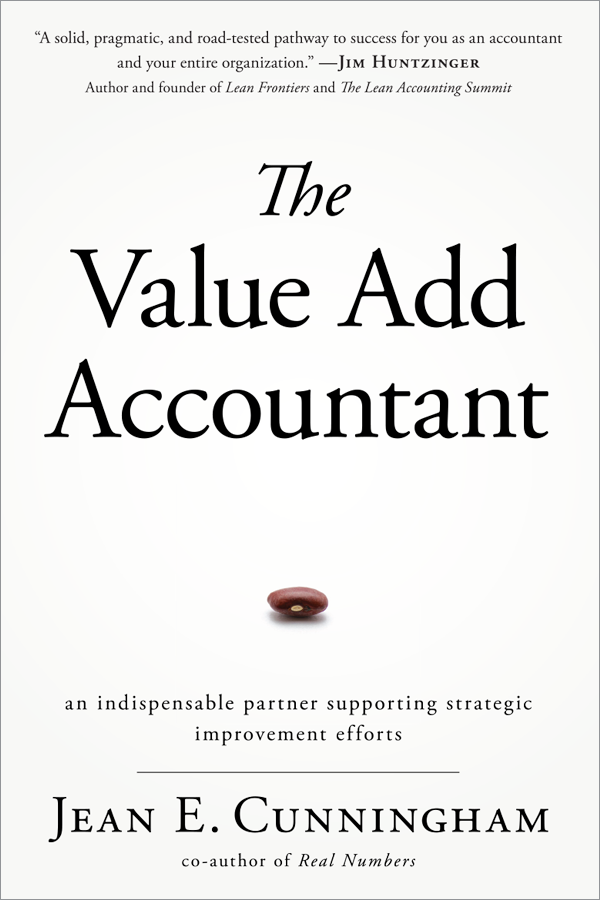An interview with Deb Merrill, director, process improvement, and Michael Rubin, head of global customer delivery, hospitality, Amadeus, a technology company that serves the travel industry, including airlines and airports, hotels and railways, search engines, travel agencies, tour operators and other travel-related businesses.
Mike: Please share a brief background of lean and kaizen at Amadeus. When and why did you start? What are some of the key customer outcomes you’ve focused on and improvements you’ve made?
Deb and Michael:
Michael joined Amadeus in 2017; his role, in part, was to look at improving processes, and he felt that lean could help. We attribute much of the success we’ve had with lean to “getting off on the right foot” — we introduced lean in a very collaborative way, really requiring collaboration, non-blameful behavior, and attention to change management. People quickly wanted to work with Deb as the internal head of continuous improvement because that’s where they could get engagement and help in solving problems. When we plan a kaizen event, we have more requests to attend than we have room — that’s the reputation that kaizen has at Amadeus.
One of the key customer benefits of our kaizen is the speed at which we can make accurate proposals.
One of the key customer benefits of our kaizen is the speed at which we can make accurate proposals. Once a customer has indicated an interest in one or more of our products, they don’t want to wait excessively for a proposal or subsequent unreasonable delays due to simple changes. Also, the cumulative effect of improvements from our kaizen events has significantly reduced the lead time to complete a customer implementation.
What are some examples of how the finance and accounting team has participated in kaizen?
We organized one kaizen event just focused on Finance. The finance team was heavily burdened by waste in their billing process — they touched every customer bill and every transaction. The event was cross-functional, including individuals who represented the upstream functions that provided information to Finance. It resulted in improvement initiatives that ensured that the upstream information was correct. The team also incorporated automation into generating the customer bill so that each bill didn’t have to be touched before being issued. Since then, we’ve included Finance (the team responsible for billing, posting, and revenue recognition) in all of our kaizen events.
Why has it been important to have their participation?
Finance is responsible for key steps in the value stream to the customer, ensuring that a clear, correct bill is issued to the customer in a timely way, which impacts the customer’s experience in working with Amadeus. Finance is also a key stakeholder of internal processes since, to do their work, they receive inputs from the teams who work directly with the customer. When these processes aren’t working optimally, there can be a negative impact on our customers with inaccurate, confusing, or untimely billing. These problems can lead to collection issues and slow the company’s ability to recognize revenue. Finance is also responsible for ensuring that revenue is recognized at the right time and is supported and documented by upstream processes.
Finance has benefitted from participation in cross-functional events in a number of ways. Again, as key stakeholders in our internal processes, they benefit from being heard. They’ve gained a shared understanding of the problems and opportunities in the value stream and collaborated in breaking down siloes and creating joint ownership. Finance has enthusiastically embraced the opportunity to work together to improve. They want to understand what’s happening in upstream processes, which allows them to work more accurately, efficiently, and timely.
What risks do you see in not including Finance?
Without Finance, you jeopardize your ability to collect cash and have accurate financial statements. As part of our first kaizen event, we focused on improving time to revenue, which is one of our key results metrics. We needed to understand how the changes that were being made in the product implementation cycle (the customer-facing process) impacted Finance — specifically in terms of Finance’s ability to integrate them into billing and revenue recognition. The risk would be making changes to the customer value stream without considering the impact on financial processes.
What role have Finance and Accounting played in implementing and sustaining the improvements after the events?
They have owned the initiatives in their improvement event on billing — they took ownership from the start through completion. In cross-functional kaizen events, they serve as members of the project teams that execute improvements where Finance has a process role. Finance also owns data collection for their part of the process. For example, in the first billing kaizen event, they tracked the reduction in customer bills which had to be manually reviewed and adjusted; the percent reduction was significant.
What has Finance’s response been to being included and involved in the kaizen events?
They have been eager to participate. Representatives from Finance had participated in a kaizen event in another area and saw how this could help them, so they requested the initial kaizen event for the customer bill process that we mentioned earlier.
What guidance would you share with other operational leaders on how and why to integrate the finance and accounting team into their continuous improvement work?
The reality is that we’re all ultimately driven by the company’s ability to collect cash, so it’s not just important to avoid unintentionally impacting financial processes but really more important to identify opportunities to improve them. Also, the earlier you can work with the finance team to translate the process focus of lean to the numerical, financial outcomes, the better.
One of the most important aspects of planning a successful kaizen event is selecting the right people to participate. We find ourselves in the enviable position of having more people want to participate than space in the room. We look for the right cross-functional participation — Operations, Sales, Finance, Contracting, etc. — and people from those functions who can be change agents. This way, you get buzz from the start, and you have the staying power to see the work through to the end, getting better outcomes for customers and better financial results for the company.
Learn More
Get information about using lean thinking in Accounting and Finance sent directly to your inbox. Subscribe now to the Lean Accounting Learning and Practice newsletter.
Managing to Learn with the A3 Process
Learn how to solve problems and develop problem solvers.







agree, one process is a process, if there is a manufacture or administrative activities, the logical is the same, the make sense is easy when we don’t encapsule the concepts into an specific task.